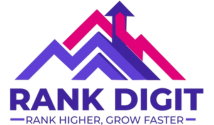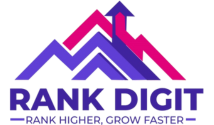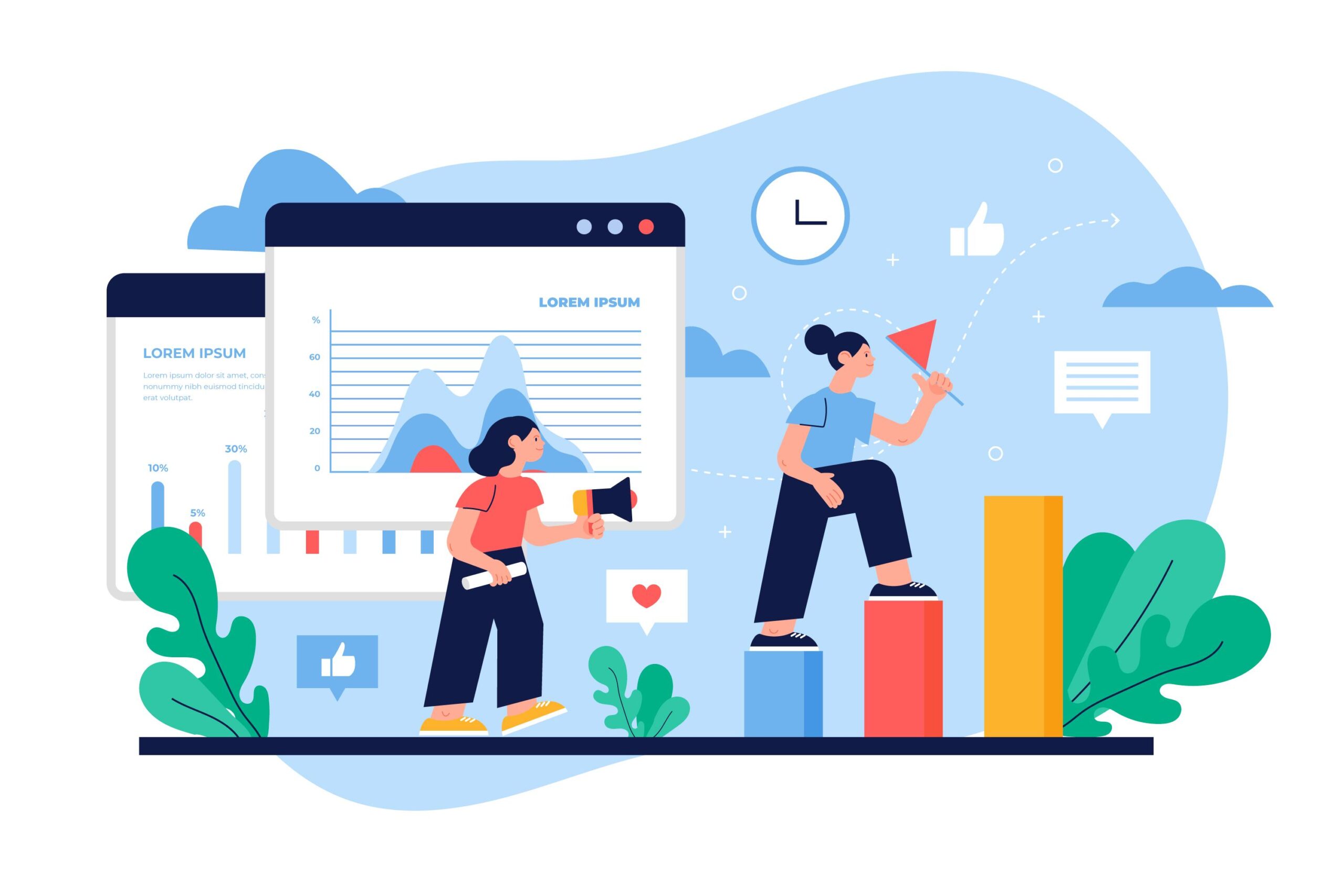- May 4, 2025
Table of Contents
Understanding Lead Generation Specialists
A Lead Generation Expert is a marketing professional whose primary responsibility is to identify, attract, and convert potential customers into qualified leads for a business. These specialists work at the front end of the sales funnel, ensuring that sales teams have a steady stream of prospects to convert.
They utilize a variety of strategies to capture interest—ranging from cold calling, email outreach, social media engagement, SEO tactics, to content marketing. Their job isn’t merely to get contact details but to ensure the people they identify are genuinely interested in what the business offers.
A great lead generation specialist possesses a deep understanding of customer behavior, the sales process, and modern digital marketing tools. They also need to work closely with both the sales and marketing teams to align goals and messaging. These specialists must continuously evaluate and adjust strategies based on conversion metrics and return on investment (ROI).
Best Practices in Lead Generation
Successful lead generation is a strategic process that combines creativity, analytics, and consistency. It’s not just about generating large volumes of leads, but about bringing in the right prospects—those most likely to convert into long-term customers. Below are key best practices to optimize your lead generation Expert efforts:
1. Know Your Audience
Before reaching out to prospects, it’s crucial to define your ideal customer profile (ICP). Segmenting by demographics, job roles, industry, and behavior allows for personalized messaging, increasing your conversion rates.
2. Multi-Channel Outreach
Relying on just one channel limits your reach. An integrated, multi-channel approach—combining email marketing, LinkedIn outreach, paid ads, content marketing, webinars, and even cold calling—ensures you meet potential leads wherever they are. This improves your chances of engagement and maximizes visibility.
3. Lead Scoring
Not all leads are equal. Lead scoring helps you rank prospects based on attributes like company size, job title, and behavior such as website visits or email opens. A well-implemented scoring system helps sales teams prioritize their outreach, focusing on leads with the highest likelihood of converting.
4. Quality Content
Content is the backbone of inbound lead generation expert. Develop a content strategy that offers value through blog posts, eBooks, webinars, case studies, and whitepapers. Your content should address specific pain points and offer solutions, building trust and establishing your brand as an authority.
5. Landing Page Optimization
Your landing pages must be clear, visually appealing, and focused on a single call-to-action (CTA). Remove distractions and guide users toward conversion—whether it’s downloading a resource or filling out a contact form. A/B testing headlines, layouts, and CTAs helps improve performance over time.
6. Follow Up Promptly
Speed is crucial. Contacting a lead within the first five minutes of engagement can drastically increase conversion chances. Set up automation to trigger immediate responses and have sales teams ready to act quickly on high-intent leads.
7. CRM Integration
A robust CRM system is essential for tracking lead interactions, managing pipeline stages, and ensuring timely follow-ups. Integration with your marketing tools enables seamless data sharing, efficient lead nurturing, and accurate performance tracking, which collectively improve ROI.
Choosing the Right Lead Generation Specialist
Finding the right lead generation specialist is a critical decision for any business aiming to grow its sales pipeline. The ideal specialist should combine data-driven decision-making with creative thinking and effective communication. Here are key qualities to look for:
1. Experience in Your Industry
When evaluating lead generation Expert, industry-specific experience should be a top priority. A specialist familiar with your sector understands customer pain points, jargon, buyer behavior, and competitive dynamics. This enables them to craft highly relevant messaging, identify niche opportunities, and avoid common pitfalls. Industry expertise dramatically shortens the learning curve, allowing them to deliver faster and more effective results.
2. Proven Metrics
A reliable lead generation specialist should be able to present concrete data from past campaigns. Look for performance indicators like conversion rates, lead-to-sale ratios, cost per lead, and engagement metrics. These KPIs help validate their effectiveness and provide confidence in their ability to replicate success. Transparency with numbers also signals professionalism and accountability.
3. Technical Skills
Modern lead generation Expert relies heavily on technology. Your ideal candidate should be proficient in tools such as LinkedIn Sales Navigator for prospecting, Google Analytics for campaign tracking, and platforms like HubSpot or Mailchimp for automation. A strong grasp of CRM systems and lead nurturing workflows ensures that no opportunities fall through the cracks and that outreach is timely and data-informed.
4. Strong Communication Skills
Clear and effective communication is essential throughout the lead generation process. Specialists need to engage leads with compelling messages, answer inquiries professionally, and provide regular updates to your internal team. They should also be adept at translating performance data into actionable insights and recommendations. Good communicators build trust both with your prospects and your team.
5. Creative Thinking
Creativity sets great lead generators apart from average ones. The best specialists don’t rely solely on templated messages—they develop custom strategies, experiment with subject lines, design innovative offers, and continually optimize outreach campaigns. Creative thinkers can adapt quickly to market changes and keep prospects engaged in competitive environments.
6. Collaboration with Sales
A strong lead generation specialist doesn’t work in isolation. They actively collaborate with your sales team to align messaging, timing, and qualification criteria. This ensures a seamless handoff between marketing and sales and improves close rates. Regular feedback loops between the teams also help refine campaigns and increase ROI.
The Benefits of Hiring a Lead Generation Expert
Hiring a lead generation expert can significantly transform your business’s ability to attract, engage, and convert high-quality prospects. Whether you’re a startup or an established brand, a specialist brings focused expertise and proven systems to boost your marketing efforts and support long-term growth. Below are key benefits of working with a lead generation professional:
1. Faster Pipeline Growth
Lead generation experts are skilled at filling your sales pipeline efficiently. They use proven outreach methods, data-driven targeting, and lead nurturing tactics to ensure a steady stream of qualified leads. By outsourcing this time-consuming task, your internal team can focus on what they do best—closing deals and serving clients—resulting in accelerated growth and shorter sales cycles.
2. Cost Efficiency
Without a clear strategy, generating leads can quickly become expensive and inefficient. A specialist optimizes your marketing spend by targeting only the most relevant audiences and channels. They use analytics to track performance, eliminate waste, and improve conversion rates. The result is a lower cost-per-lead and a better return on investment (ROI) compared to in-house trial-and-error approaches.
3. Improved Lead Quality
High-volume lead lists are only useful if the contacts are actually qualified. Lead gen experts apply precise criteria when sourcing prospects—such as budget, decision-making power, and readiness to buy. This ensures that the leads passed to your sales team are more likely to convert, increasing both efficiency and customer lifetime value.
4. Better Data Management
A key benefit of hiring a lead generation expert is their ability to manage data effectively. They maintain clean, updated records in your CRM, enabling accurate segmentation, timely follow-ups, and effective reporting. This structured data foundation supports your entire sales and marketing ecosystem, helping avoid missed opportunities or duplicate outreach.
5. Scalability
As your business grows, your lead generation efforts need to grow with it. Experts design scalable systems that can accommodate higher lead volumes without compromising quality. From automating outreach to segmenting databases, they ensure your lead pipeline can expand seamlessly alongside your business goals.
6. Increased Revenue
Ultimately, the main goal of hiring a lead generation expert is to drive sales. By consistently supplying qualified leads and enhancing your conversion rates, they have a direct impact on revenue. A well-fed pipeline translates into more closed deals, stronger customer relationships, and greater profitability over time.
Identifying and Managing Quality Leads
Attracting leads is only the first step; the real challenge lies in identifying which ones are truly worth pursuing and managing them effectively through the sales funnel. Here’s how to ensure your team focuses on high-quality prospects who are more likely to convert:
1. Define What ‘Qualified’ Means
Start by establishing clear criteria for Marketing Qualified Leads (MQLs) and Sales Qualified Leads (SQLs). These definitions should be agreed upon by both marketing and sales teams. Common qualification factors include budget, decision-making authority, need, and timeline. Clear criteria ensure consistency and help teams focus on the right opportunities.
2. Use Lead Scoring
Implement a lead scoring model that assigns points based on engagement, demographic data, and behavioral signals. For example, downloading a whitepaper might be worth more points than simply opening an email. This approach helps prioritize leads that are most likely to convert.
3. Track Engagement
Closely monitor lead activity—clicks, form fills, webinar attendance, page visits, and content downloads. These actions reveal levels of interest and buying intent, helping your team identify when a lead is ready for outreach.
4. Validate Contact Information
Use verification tools to ensure that lead data—like emails and phone numbers—is accurate. Clean data prevents wasted time and resources on bounced emails and dead-end contacts.
5. Segmentation and Personalization
Segment leads based on attributes such as industry, job title, company size, or stage in the buying journey. Use this segmentation to tailor messaging, which boosts engagement and improves your chances of converting the lead.
6. Lead Nurturing Campaigns
Develop automated email workflows that educate and build trust over time. Consistent, value-driven communication keeps your brand top-of-mind and moves leads closer to making a decision.
7. Sales and Marketing Alignment
Ensure both teams are aligned on when and how leads are handed off. Clear processes and ongoing communication between departments reduce friction and increase lead conversion efficiency.
The Role of SEO in Lead Generation
Search Engine Optimization (SEO) plays a crucial role in modern lead generation strategies. By optimizing your content and website to rank higher on search engines, you can attract high-quality traffic and turn that visibility into valuable leads. Here’s how SEO supports effective lead generation Expert:
1. Attracting Inbound Leads
SEO drives organic traffic by helping your content appear in search results when potential customers are actively seeking solutions. These inbound leads tend to have higher intent because they’re already searching for what you offer, making them more likely to convert than cold outreach targets.
2. Targeting High-Intent Keywords
By focusing on keywords that indicate purchase readiness—such as “best CRM for small business” or “B2B lead generation services”—you can attract prospects at the bottom of the sales funnel. These users are closer to making a decision and more likely to engage with your business.
3. Content as a Lead Magnet
Blog posts, whitepapers, guides, and landing pages serve as valuable SEO assets. When optimized properly, they attract visitors and convert them into leads through strategically placed calls-to-action (CTAs), newsletter sign-ups, or gated content.
4. Building Domain Authority
Consistently publishing helpful, authoritative content and earning backlinks from reputable sites boost your domain authority. Higher authority increases your search engine rankings and builds trust with potential leads.
5. Local SEO
For businesses targeting geographic areas, local SEO is essential. Optimizing for location-specific keywords and maintaining a Google Business Profile helps attract nearby customers who are searching for local services.
6. Data-Driven Strategy
SEO tools like Google Search Console, SEMrush, or Ahrefs provide data on keyword rankings, user behavior, and site performance. This data allows you to refine your content strategy and better align it with lead-generating opportunities.
7. Sustainable Growth
Unlike paid ads, SEO delivers compounding benefits. Once your content ranks well, it can generate leads consistently over time with minimal maintenance, making SEO a cost-effective and long-term growth strategy.
Essential Skills for Lead Generation Professionals
Lead generation professionals play a pivotal role in fueling business growth. They must possess a blend of technical expertise, strategic thinking, and interpersonal finesse to attract, engage, and convert potential customers. Here are the essential skills that define top-performing lead generation experts:
1. Digital Marketing Knowledge
A strong grasp of digital marketing channels such as SEO, pay-per-click (PPC), email marketing, and social media is essential. Understanding how each platform works—and how to use them in concert—allows professionals to run targeted campaigns, generate inbound traffic, and nurture leads effectively through the funnel.
2. CRM and Automation Tools
Proficiency in customer relationship management (CRM) systems like Salesforce, HubSpot, and Zoho is critical. These tools help track lead interactions, score leads, and automate follow-ups. Knowledge of email automation platforms also enables consistent, personalized communication that keeps leads engaged.
3. Analytical Thinking
The ability to analyze campaign data, interpret metrics, and identify patterns is crucial for optimizing performance. Professionals must be comfortable with KPIs such as open rates, click-through rates, conversion rates, and cost-per-lead to make data-driven decisions and maximize ROI.
4. Copywriting
Compelling messaging is at the heart of every successful lead generation campaign. Whether writing emails, ad copy, or landing pages, the ability to craft persuasive content that resonates with your target audience increases engagement and drives conversions.
5. Sales Acumen
Understanding the sales cycle and buyer journey allows lead generation professionals to qualify prospects effectively and time their outreach appropriately. Knowledge of sales processes ensures that leads passed on to sales teams are well-informed and ready to move forward.
6. Research Skills
Identifying ideal customer profiles, researching competitors, and spotting industry trends are vital components of successful lead targeting. Research-driven campaigns are more relevant, personalized, and effective in reaching decision-makers.
7. Time Management
Handling multiple campaigns, follow-ups, and tools requires excellent organizational skills. Prioritizing tasks and staying on schedule ensures a steady pipeline and avoids letting potential leads go cold.
8. Creativity
Creativity is what sets standout campaigns apart. Whether it’s in subject lines, messaging, or offer presentation, thinking outside the box can capture attention and drive higher engagement rates than generic approaches.
Final Thoughts
Hiring a lead generation expert can significantly enhance your business’s growth potential. These professionals bring targeted strategies, advanced tools, and deep industry knowledge to attract high-quality leads and streamline your sales funnel. By focusing on lead qualification, data analysis, and campaign optimization, they help reduce acquisition costs and increase conversion rates. Whether you’re a startup or scaling enterprise, a lead gen expert can be a game-changer—freeing your internal teams to focus on closing deals and building client relationships. In today’s competitive market, investing in expert lead generation isn’t just smart—it’s essential for sustainable success and long-term revenue growth.




